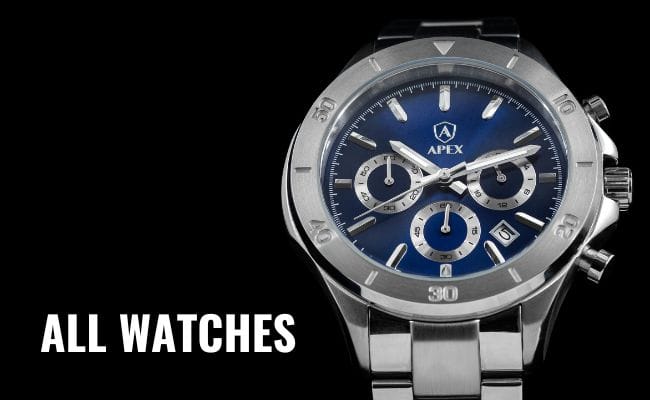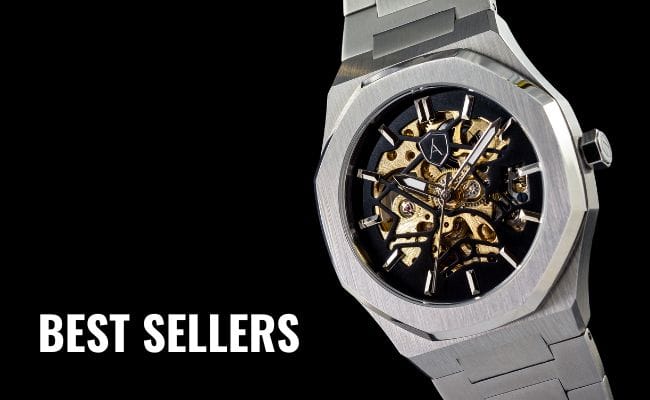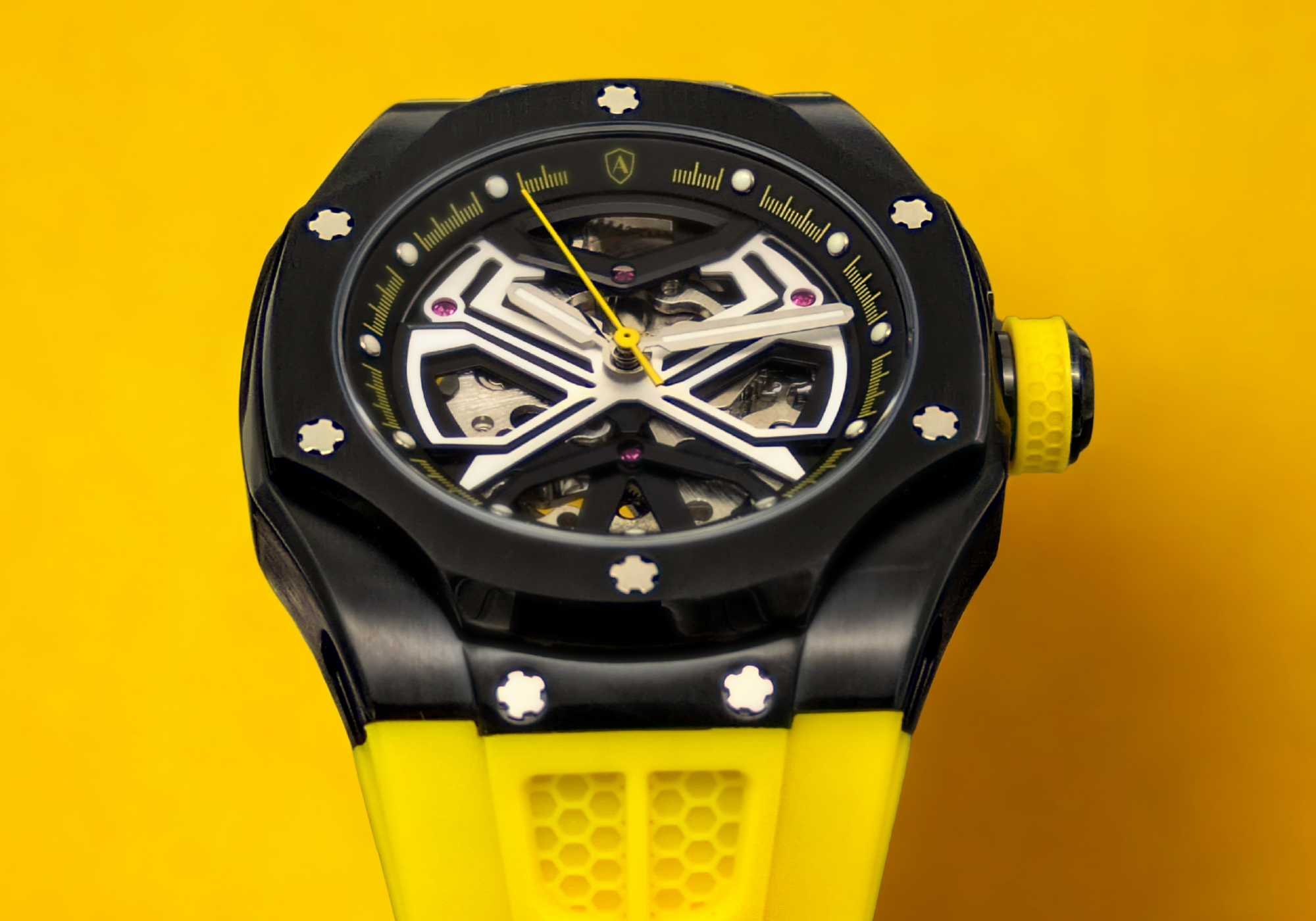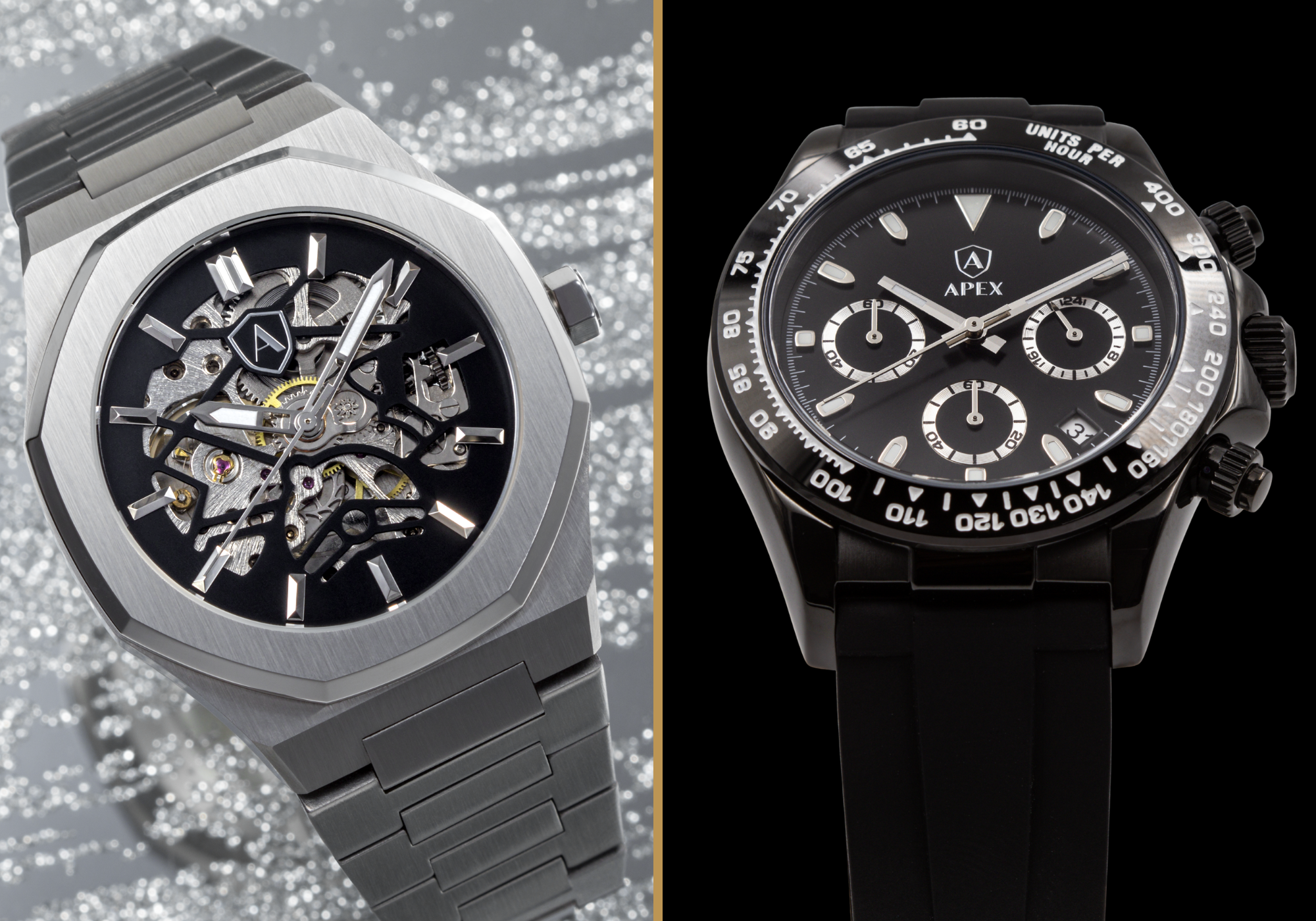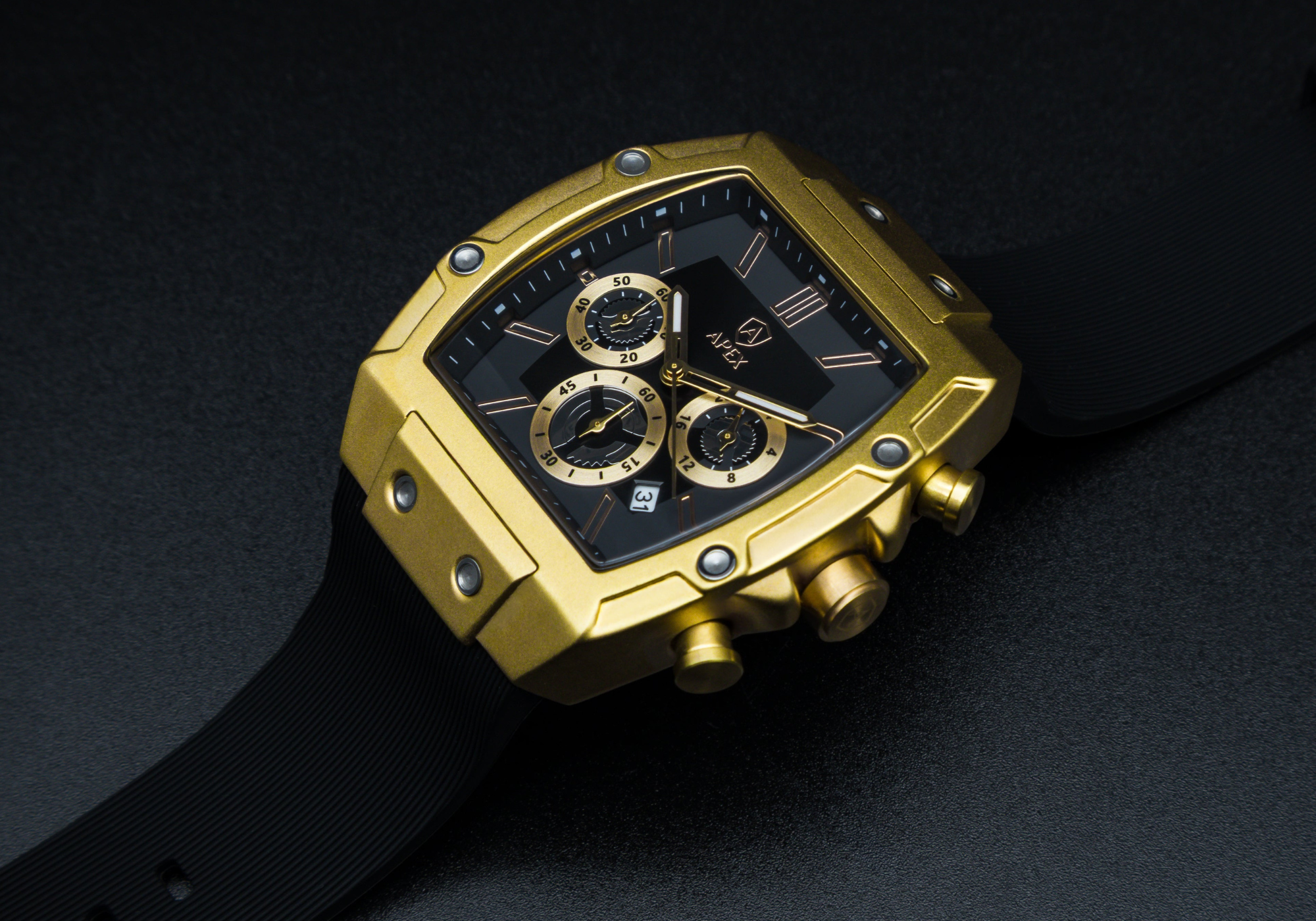
FAQs ABOUT WATCHES
1. Introduction
When it comes to men's fashion, one accessory that holds both practicality and style in equal measure is a designer watch. A well-crafted timepiece not only serves the purpose of telling time but also makes a bold statement about the wearer's personality and taste. In the world of men's fashion, where attention to detail is paramount, choosing the right watch becomes a crucial decision. Whether it's a sophisticated silver watch, an opulent gold timepiece, or an intricately designed Icon, men's designer watches offer a blend of elegance, craftsmanship, and functionality. In this article, we will explore the significance of men's designer watches and delve into the essential factors to consider when making this noteworthy choice. So, if you're ready to embark on a journey through the fascinating world of men's watches, read on. It's time to find your perfect match.
2. What to ask about a watch?
When it comes to purchasing a men's designer watch, it's essential to ask the right questions to ensure you make an informed decision. Here are some key inquiries to consider:
-
Quality and Craftsmanship:
- What materials are used in the watch's construction?
- Are the components and finishes of high quality?
- How meticulous is the craftsmanship in creating the watch?
-
Movement Type (Quartz or Automatic):
- Is the watch powered by a quartz movement or an automatic movement?
- What are the advantages and disadvantages of each movement type?
- Which movement type aligns with your preferences and lifestyle?
-
Water Resistance:
- What level of water resistance does the watch offer?
- Is it suitable for everyday wear or specific activities like swimming or diving?
- Does the water resistance rating meet your needs?
-
Functions and Features:
- What additional functions does the watch offer, such as chronograph, date display, or GMT?
- Do these functions align with your requirements and preferences?
- Are the functions intuitive and easy to use?
Asking these questions will help you assess the watch's quality, functionality, and reliability, ensuring that your chosen timepiece meets your expectations and stands the test of time. Remember, a men's designer watch is not just a fashion statement; it's an investment in both style and substance.
You can ask any questions you may have at support@apex-watches.com

3. Did you know facts about watches
Watches have a rich history that spans centuries, and there are fascinating facts that often go unnoticed. Let's explore some intriguing and lesser-known facts about watches:
-
Evolution of Watchmaking Techniques:
- Did you know that early watches were mechanical and required regular winding to keep time?
- The invention of the mainspring in the 15th century revolutionized watchmaking, allowing for longer running times.
- In the 18th century, watchmakers developed the escapement mechanism, improving timekeeping accuracy.
-
Historical Significance of Watches:
- During World War I, wristwatches gained popularity among soldiers as a practical alternative to pocket watches, leading to a shift in fashion and convenience.
- In the early 20th century, watches became symbols of status and wealth, often adorned with precious metals and gemstones.
-
Notable Watch Inventions and Innovations:
- Abraham-Louis Breguet, a renowned watchmaker, invented the tourbillon in the late 18th century. This complex mechanism improves accuracy by counteracting the effects of gravity on the watch's movement.
- The advent of quartz watches in the 1960s revolutionized the industry, as they utilized electronic oscillators for precise timekeeping.
- The introduction of automatic (self-winding) watches eliminated the need for manual winding by harnessing the natural motion of the wearer's wrist.
These fascinating facts shed light on the remarkable evolution of watches and their significance in history. From the advancements in watchmaking techniques to the impact on fashion and innovation, each timepiece carries a story worth appreciating. Next time you glance at your watch, remember the rich heritage behind this timeless accessory.
4. What is Important about a watch?
When choosing a watch, several key factors contribute to its importance and appeal. Here are the essential elements to consider:
-
Style and Aesthetics:
- A watch serves as a reflection of personal style and can make a statement about your individuality.
- The design, shape, and overall aesthetics of a watch play a crucial role in its appeal, allowing you to express your taste and enhance your overall look.
-
Functionality and Practicality:
- While a watch is undoubtedly a fashion accessory, its primary purpose is to provide accurate timekeeping.
- The functionality and practicality of a watch, such as clear dials, easy-to-read markers, and user-friendly features, ensure it serves its intended purpose efficiently.
-
Quality Materials and Craftsmanship:
- The quality of materials used in a watch's construction greatly impacts its durability and longevity.
- Watches crafted from premium materials like stainless steel, gold, or titanium tend to be more resistant to wear and maintain their appearance over time.
- Attention to detail, precision in assembly, and skilled craftsmanship contribute to a watch's overall quality and value.
-
Personalization and Unique Features:
- A watch that offers personalization options, such as interchangeable straps or customizable dials, allows you to tailor it to your preferences.
- Unique features like complications (e.g., chronograph, moon phase, or dual time zone) can add practicality and intrigue to a watch, setting it apart from others.
Considering these factors ensures that the watch you choose not only aligns with your personal style but also meets your functional needs. It's the perfect combination of style, functionality, quality materials, and personalized touches that makes a watch truly important and meaningful to its wearer.
5. The most important thing in a watch?
Determining the most important aspect of a watch is a subjective matter that can vary from person to person. Different perspectives contribute to what individuals value most in a timepiece. Here are three key factors often considered significant when assessing the importance of a watch:
-
Design and Aesthetics:
- For many watch enthusiasts, the design and aesthetics of a timepiece are of paramount importance.
- The visual appeal, including the shape, dial layout, hands, markers, and overall finishing, can greatly influence a watch's desirability.
- The watch's design should resonate with the wearer's personal style, evoking a sense of connection and admiration.
-
Movement and Precision:
- The movement, or the mechanism inside the watch, is a crucial aspect that determines its accuracy and performance.
- Some individuals prioritize watches with mechanical movements, appreciating the intricate craftsmanship and the mechanical artistry involved.
- Others prefer quartz movements for their reliability, precision, and low maintenance requirements.
-
Brand Heritage and Reputation:
- The reputation and heritage of a watch brand can hold significant importance for many collectors and enthusiasts.
- Brands with a long-standing history of producing exceptional timepieces often garner respect and trust.
- The heritage of a brand can signify a commitment to quality, innovation, and enduring craftsmanship.
Ultimately, the most important thing in a watch is a highly personal choice. While some may prioritize the design and aesthetics, others may place greater importance on the movement's precision or the brand's reputation. It's a unique combination of these factors that resonates with the individual wearer and fulfils their expectations and preferences.
When selecting a watch, it's essential to consider these aspects, align them with your personal preferences, and find a timepiece that speaks to you on multiple levels. Remember, the beauty of watches lies in their ability to evoke emotion, tell a story, and become cherished companions that accompany you through life's journey.
6. Why is it called a watch?
The term "watch" used to describe timepieces has an interesting origin rooted in history. The word itself can be traced back to the Old English word "woecce" or "woeccan," which means "to be awake" or "to remain vigilant." Over time, this term evolved to refer to the act of being alert or keeping a close eye on something.
The connection between the term "watch" and timekeeping devices became established during the 17th century when portable timepieces started gaining popularity. These early timepieces were worn as pocket watches or carried by individuals who needed to keep track of time regularly.
Since these timepieces required regular winding and adjustment to maintain accurate time, their owners had to remain vigilant and attentive to their functioning. This association with being watchful and attentive led to the term "watch" being used to refer to these portable timekeeping devices.
As time went on, technology advanced, and wristwatches became more prevalent. However, the term "watch" continued to be used to describe both pocket watches and wristwatches, becoming a standard name for timepieces in general.
So, the next time you wonder why it's called a "watch," remember its historical connection to vigilance and attentiveness, highlighting the importance of being mindful of time.
7. When was the first watch made?
The development of watches spans centuries, and the evolution of timekeeping devices is a fascinating journey through history. While it's difficult to pinpoint the exact individual or watch that can be considered the very first, there are significant milestones in the development of early timepieces.
The origins of mechanical timekeeping devices can be traced back to ancient civilizations. The earliest known mechanical clocks were sundials, which used the position of the sun's shadow to indicate the time. These sundials evolved into more sophisticated devices, such as water clocks and hourglasses, which were used to measure time in various cultures.
In terms of portable timekeeping devices worn on the body, the development of mechanical watches took place in Europe during the 15th and 16th centuries. One of the key figures in this development was Peter Henlein, a German locksmith and watchmaker credited with creating small portable watches. Henlein's watches, known as "Nuremberg eggs," were the precursors to pocket watches and featured a mainspring mechanism for power.
Another notable figure in watchmaking history is Abraham-Louis Breguet, an esteemed Swiss watchmaker who made significant contributions to horology in the late 18th and early 19th centuries. Breguet's innovations, such as the invention of the tourbillon (a mechanism that improves accuracy by counteracting the effects of gravity), set new standards for precision and craftsmanship in watchmaking.
It's important to note that the development of watches was a collective effort by numerous skilled watchmakers and artisans over time. Their ingenuity, craftsmanship, and relentless pursuit of precision and innovation contributed to the evolution of timekeeping devices into the sophisticated watches we know today.
While we may never know the identity of the very first watch or its inventor, the historical milestones and advancements in watchmaking have shaped the industry and continue to inspire watch enthusiasts and collectors worldwide.
8. What type of watch is most popular?
The popularity of watch styles can vary over time as fashion trends and personal preferences evolve. However, several types of watches have maintained their appeal and continue to be popular among watch enthusiasts. When it comes to men's designer watches, some styles have gained prominence. Let's explore the current trends and popularity of specific watch types:
-
Dress Watches:
- Dress watches are characterized by their sleek and elegant designs, often featuring minimalist dials and slim profiles.
- These watches are popular for formal occasions and professional settings, where their refined aesthetics and understated elegance make a sophisticated statement.
-
Sports Watches:
- Sports watches are known for their durability, functionality, and sporty designs.
- They often feature features like water resistance, robust cases, and additional complications like chronographs or tachymeters.
- Sports watches are favoured by individuals who lead active lifestyles or appreciate a more rugged and adventurous aesthetic.
-
Dive Watches:
- Dive watches have gained significant popularity due to their combination of functionality and stylish design.
- They feature high water resistance, legible dials with luminescent markers, and unidirectional rotating bezels.
- Dive watches are not only sought after by diving enthusiasts but also admired for their bold and versatile aesthetics.
-
Chronograph Watches:
- Chronograph watches are loved for their additional timing features, allowing users to measure and record elapsed time.
- These watches often feature multiple sub-dials and pusher buttons for controlling the chronograph functions.
- Chronograph watches have become a popular choice for individuals who appreciate the practicality and sporty appeal of these timepieces.
-
Luxury Watches:
- Luxury watches, including men's designer watches, continue to hold a significant place in the watch industry.
- These watches are crafted with exceptional attention to detail, using high-quality materials and precise movements.
- Luxury watches often feature intricate designs, complications, and unique features that make them coveted status symbols.
While the popularity of watch styles can vary depending on personal preferences and fashion trends, these categories consistently stand out in the market. Men's designer watches, in particular, capture the essence of style and craftsmanship, catering to individuals who appreciate the artistry and exclusivity of a finely crafted timepiece.
Whether it's a sleek dress watch, a rugged sports watch, or a luxurious statement piece, the popularity of a watch style ultimately depends on individual tastes and the occasion for which it is intended. The diverse range of options ensures there's a watch to suit every style and preference, making the world of watches an exciting and ever-evolving landscape.
It's important to note that personal preferences, emotional attachment, and the enjoyment derived from wearing a watch also contribute to its worth. A watch that holds sentimental value or aligns with your personal style and tastes can be priceless to you, regardless of its monetary value.
Ultimately, what makes a watch worth it is a combination of these factors and the subjective importance placed on them by the individual wearer. Whether you prioritize brand reputation, craftsmanship, materials, exclusivity, or investment potential, finding a watch that aligns with your criteria ensures a truly valuable timepiece that brings joy and satisfaction.
9. How to choose a watch?
Choosing the right watch is an exciting process that allows you to find a timepiece that suits your style, needs, and budget. To help you make an informed decision, consider the following steps when selecting a watch:
-
Determine your style preferences:
- Consider your personal style and the occasions for which you'll be wearing the watch.
- Decide whether you prefer a classic, vintage, sporty, or contemporary design.
- Think about the dial colour, case shape, strap type, and overall aesthetic that resonates with you.
-
Set a budget:
- Determine how much you're willing to invest in a watch.
- Establishing a budget will help narrow down your options and prevent overspending.
- Keep in mind that while luxury watches can be enticing, there are also excellent options available at more affordable price points.
-
Consider your lifestyle and needs:
- Think about your daily activities, hobbies, and the environments in which you'll be wearing the watch.
- If you lead an active lifestyle, a sports watch with water resistance and durability may be more suitable.
- For formal or professional settings, a dress watch with a sleek and elegant design might be a better choice.
-
Research brands and models:
- Conduct thorough research on reputable watch brands that align with your preferences and budget.
- Look into their histories, reputations, and the quality of their craftsmanship.
- Explore different models and collections to get a sense of the variety available.
-
Try watches in person (if possible):
- Whenever possible, visit authorized retailers or watch boutiques to try on watches in person.
- Wearing the watch on your wrist will give you a better idea of its comfort, fit, and overall look.
- Pay attention to details like the size, weight, and how the watch feels on your wrist.
By following these steps, you'll be well on your way to choosing a watch that reflects your style, meets your needs, and fits within your budget. Remember, finding the perfect watch is a personal journey, and it's important to take the time to explore your options, ask questions, and make an informed decision that brings you joy and satisfaction for years to come.
You can shop our full range of watches here
